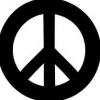Northern Provincial Council Elections in Sri Lanka: What Next?
After 25 years, for the first time, election was held to the demerged Northern Provincial Council (NPC) on September 21. Though the victory of the Tamil National Alliance (TNA) with a thumping two-third majority was predicted, some thought the development route to ethnic reconciliation as relentlessly articulated and pursued by the Rajapakse government, would give it some electoral benefits. It managed to win only 7 seats (18.38 per cent of the votes) in the 38-member council.







